Programa de Pós-Graduação em Fisioterapia
 O Programa
O Programa
The program:
The postgraduate course in Physiotherapy, master's level, at the Federal University of Pernambuco was recommended by Capes in July 2008 and approved by MEC in June 2009. In December 2023, the course reached a new milestone with the approval of its PhD program. The course's area of concentration is “Physiotherapy in Health Care”, whose guiding principle is based on new concepts and discussions that involve the health process. The understanding of this process as the result of the way societies are organized and the relationships between man and his environment, going beyond the “absence of disease” discourse.
Currently, the insertion of new models of health care is requiring the training of professionals capable of working at all levels and phases of the health/disease process. The proposal is to consolidate a program where the health process, and not just the disease, is the object of investigation. The aim is, in this way, to insert new professionals into the scientific and academic world, focused on an expanded health paradigm, breaking the limits of curative assistance, thus allowing the development of research at all levels and phases of human health care. , contributing as an instrument of change in the area of activity.
In this context, three lines of research were structured: Assessment and intervention in neuromusculoskeletal conditions; Physiotherapy, functional performance and quality of life in cardiovascular, respiratory and renal conditions; and Physiotherapy, functional performance and quality of life in women's and men's health and in the aging process. Built with this thinking and based on the experience of its teaching staff.
The Program’s objectives are:
Train human resources in the area of Physiotherapy, thus contributing to the development of teaching and research in the various aspects related to Physiotherapy.
Develop and consolidate specific lines of research in the area of Physiotherapy.
Promote the qualification of professionals, teachers and researchers in the area of Physiotherapy;
Encourage production and exchange between the Department of Physiotherapy and other Departments at UFPE, as well as other higher education institutions;
Promote interaction between undergraduate teaching activities and postgraduate research activities in Physiotherapy;
Provide the development of research that can validate the effectiveness of new techniques and strategies for assessment and physiotherapeutic intervention.
Concentration area
Physiotherapy in health care
Research lines
Line 1: Physiotherapy, functional performance and quality of life in cardiovascular, respiratory and renal conditions:
Description: aims to study the effects of physical exercise on functional performance and quality of life from prevention to treatment/rehabilitation in healthy individuals and those with cardiovascular, respiratory, renal and metabolic comorbidities. As well as studying the reliability, accuracy and/or effectiveness of methods and resources that are used during assessments and physiotherapeutic interventions in cardiovascular, respiratory, renal and metabolic conditions.
Line 2: Assessment and intervention in neuromusculoskeletal conditions:
Description: aims to study the methods, therapeutic resources and assessment instruments used in Physiotherapy and applicable to acute and chronic neuromusculoskeletal conditions, in different life cycles, ranging from prevention to treatment/rehabilitation of these. It involves epidemiological and clinical studies to study risk factors for neuromusculoskeletal conditions and their repercussions on human functionality.
Line 3: Physiotherapy, functional performance and quality of life in women's and men's health and in the aging process:
Description: Aims to study physiotherapeutic activities from prevention to treatment/rehabilitation of specific health conditions for women, men and the aging process. The line also includes studies focusing on changes in physical performance, functional quality of life in the different stages of the lives of women, men and elderly people. It also aims to study the reliability, accuracy and/or effectiveness of methods and resources that are used during physical therapy assessments and interventions in specified population groups.





